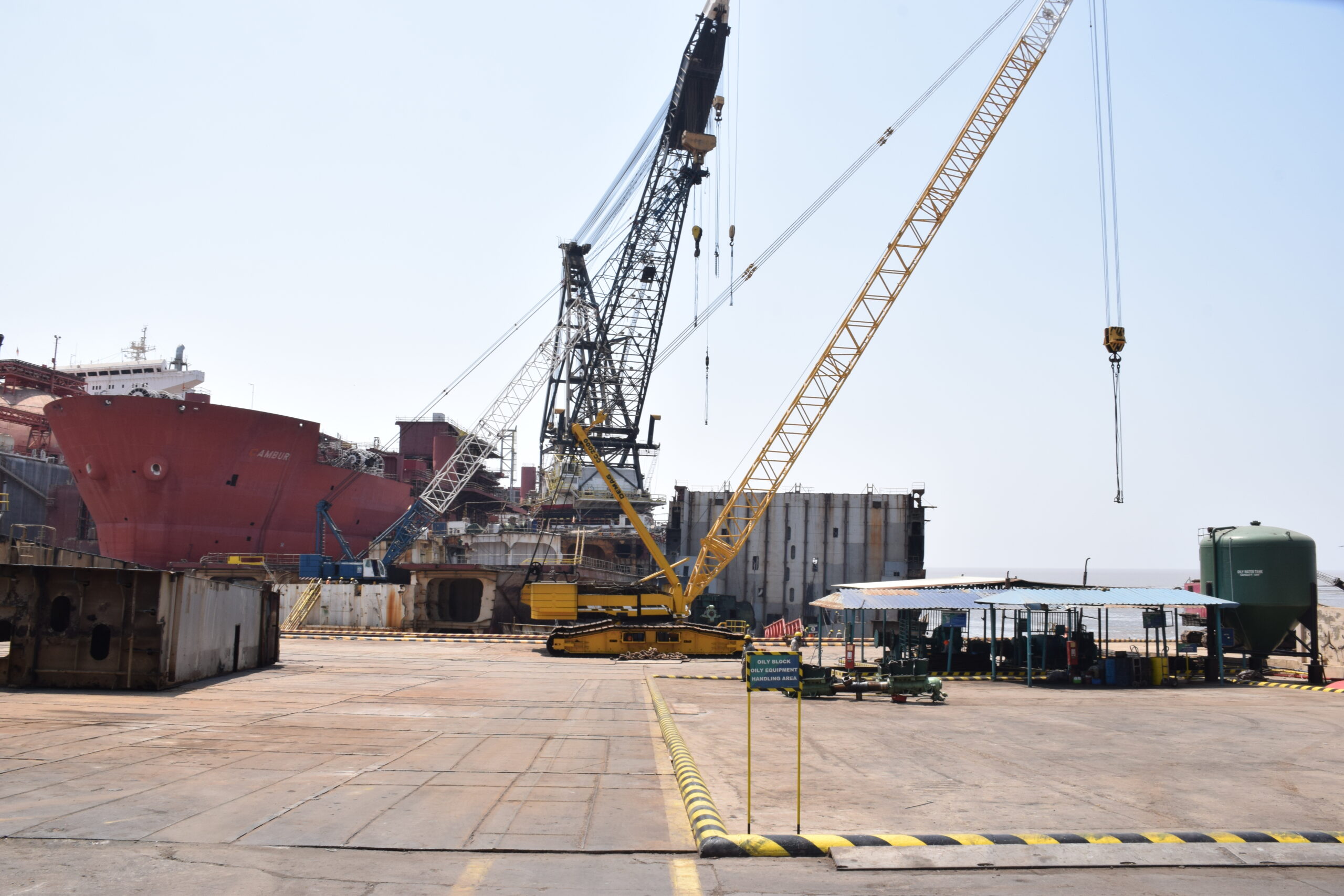Court-Ordered Arrest of Beached Vessel ‘Starlet’ Sparks Debate in Shipping Industry
Alang, Gujarat – A storm of controversy has swept through the global shipping and shipbreaking industries following a court-ordered arrest of the dead vessel Starlet, which had already been beached at Plot No. 58 of the Alang Ship Breaking Yard for demolition. The arrest, issued post-beaching, has ignited legal and commercial debates over maritime debt, vessel arrest protocols, and due diligence in the ship recycling sector.

At the heart of the dispute lies a financial conflict dating back several years. The Starlet, a dead vessel formerly operating in international waters, was reportedly sold for demolition at Alang despite having an outstanding debt of nearly $4.78 million to Aegean Baltic Bank S.A., a Greek financial institution. Originally, the bank had financed the vessel with a loan of $9 million, but only a portion had been recovered when the ship was abandoned and subsequently sold.
The legal dispute escalated when the matter reached the Gujarat High Court, which reviewed claims presented by the bank regarding its financial interest in the vessel. After hearing arguments, the High Court directed the Port Officer and the Customs Department to execute an arrest order on the Starlet and instructed the vessel’s agent to carry out the judicial directive. The move marked a rare instance where an arrest was ordered after a vessel had already been beached, effectively grounding the ship and halting any further dismantling.
Financial Trail and Legal Dilemma
According to legal filings, the Starlet was originally abandoned in Yemen, where it had partially sunk in the Port of Hodeidah on July 31, 2015, due to internal flooding. The vessel remained neglected for years, until efforts were made to remove it and sell it for demolition in a closed, or “dead,” condition. The vessel was ultimately acquired by Plot No.58, a local shipbreaking company operating at Alang, India’s largest and one of the world’s most prominent ship recycling yards.
The vessel’s journey to India, however, was fraught with operational and navigational mishaps. The Starlet was being towed by the tug Bazalt when a mechanical failure in the tug’s engine led to a dangerous situation. While traversing monsoon-affected waters, the tug’s captain dropped anchor to prevent drifting, but the anchor failed. Subsequently, the rope connecting the two vessels also snapped.
Both the tug and the dead vessel began to drift uncontrollably in open waters. The situation became critical as strong tidal currents threatened to cause a collision with nearby maritime traffic. Emergency response was triggered, and three private rescue tugs were dispatched to stabilize the Starlet and prevent a maritime accident. The tug Bazalt managed to anchor safely near Ghogha, while the rescue teams brought the Starlet under control.
The dead vessel was finally beached at Plot No. 58 in Alang on April 30, where preparations for dismantling were underway—until the arrest order halted all activity.
Industry Backlash and Legal Implications
The arrest of a beached vessel has caused widespread consternation in shipping and shipbreaking circles. Industry veterans have expressed concern over the precedent the court’s decision might set.
“This arrest after beaching disrupts the standard commercial processes in ship recycling,” said a senior official at the Alang Shipbreakers Association. “Usually, any financial claims should be resolved before a ship arrives at a demolition yard. Allowing post-beaching arrests introduces legal uncertainty and could hamper business confidence.”
Ship recycling operations are generally governed by international maritime laws, which mandate that debts or claims against a vessel be settled—or arrests be executed—while the ship is still in navigable waters. Once beached and grounded, vessels typically fall under port jurisdiction, where maritime lien enforcement becomes complex.
Legal experts, however, argue that the financial claims of the lender cannot be ignored simply because the ship changed hands.
“The bank appears to have a valid maritime lien, and such claims can survive a change in ownership,” explained maritime legal analyst Priya Mehta. “If the new owner didn’t exercise due diligence, they may now be responsible for satisfying the court’s order or negotiating a settlement with the claimant.”
A Ship’s Troubled Past
The Starlet’s history is a saga of financial setbacks and maritime misfortune. After it began sinking at Yemen’s Hodeidah port in 2015, the vessel was abandoned and left to deteriorate. It remained docked in a deteriorated state for years, until international salvage and recycling agencies coordinated its removal.
Sold as scrap, the Starlet was towed through international waters under limited power. Its purchase by Malvi Shipbreakers was seen as another step in India’s thriving shipbreaking sector, which is regulated under environmental and safety norms and plays a key role in global recycling. But the vessel’s murky legal and financial past eventually resurfaced—literally and legally.
The Road Ahead
As the court’s arrest order takes effect, further developments are awaited. It is unclear whether dismantling will be permitted to proceed under escrow conditions or if the vessel will remain untouched until the legal and financial impasse is resolved.
For now, Plot No. 58 at Alang remains a focal point of industry-wide attention. The incident serves as a cautionary tale for both buyers and financiers, highlighting the importance of thorough legal vetting and documentation before vessel transactions.
Meanwhile, the broader implications are being closely watched by stakeholders in international shipping, maritime finance, and shipbreaking, as courts and regulatory bodies grapple with questions that stretch across borders—and across the tide line.
Author: shipping inbox
shipping and maritime related web portal








